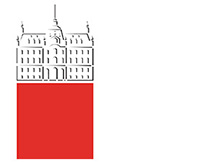The scientific field of Microbiology enables PhD students to acquire knowledge about function of microorganisms in natural and industrial systems as well as in environmental technologies where microorganisms are used as working organisms.
The study programme offers the latest findings in the fields from molecular microbiology to environmental microbiology and microbial biotechnology. The study programme offers insight into modern microbiological methods and techniques, structure and dynamics of microbial genomes, sociomicrobiology of microbial interactions in model and complex systems such as soil, water, plants, gastrointestinal tract of animals, or food. You will learn about the role of microbial interactions in the management of harmful microorganisms, ways and means to produce new biologically active molecules, biopesticides and probiotics, molecular characteristics and useful properties of microbial polymers, you will study the structure and role of microbial biofilms, and understand new solutions in the management of harmful biofilms. The study programme offers in-depth knowledge of the procedures for ensuring microbiologically safe food. An important focus is given to the role of microorganisms in sustainable agriculture, and the use of the latest technologies for the generation of renewable energy from organic waste (methane, hydrogen) and waste recycling in a circular economy. Modern biotechnological solutions for the production of bioethanol, biobutanol, mineral fertilizers, the use of bioremediation technologies and recent trends in the production of drug precursors by microbial metabolism will be discussed. The study programme offers a comprehensive view of the role, function, and various possibilities to exploit and modify microorganisms in natural and anthropogenic systems.
|
COORDINATOR: prof. dr. David Stopar |
DEPUTY COORDINATOR: prof. dr. Gorazd Avguštin |


